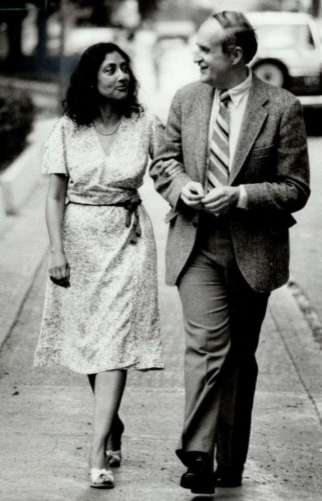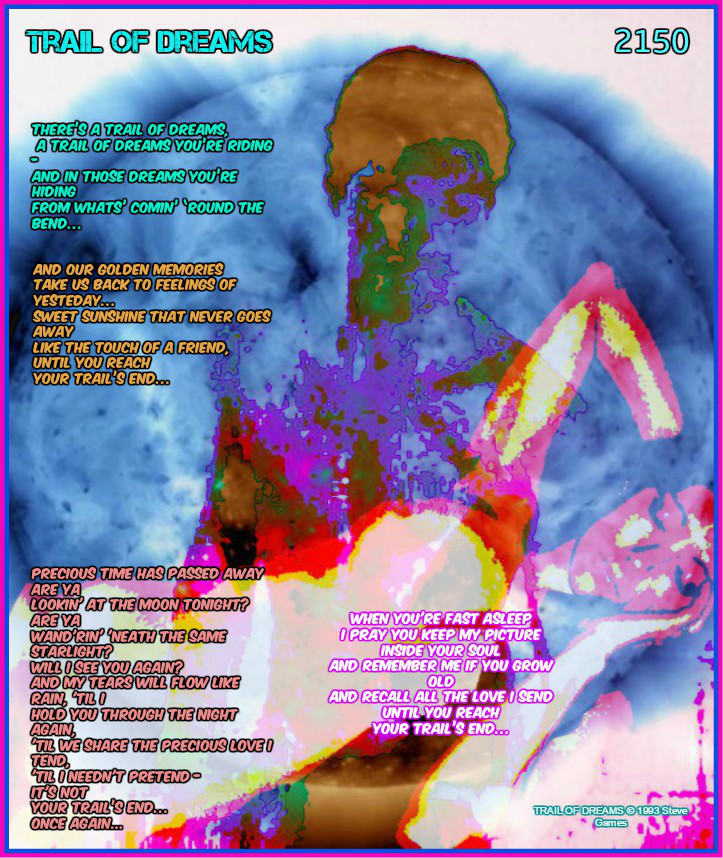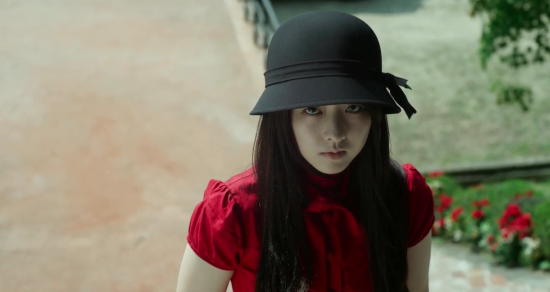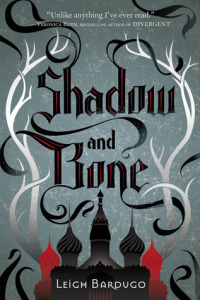 Bharati Mukherjee and Clark Blaise. Image from Getty via the San Francisco Chronicle.
Bharati Mukherjee and Clark Blaise. Image from Getty via the San Francisco Chronicle.
My memories of Bharati Mukherjee are misty and faint, mixed with the everyday trappings of a creative writing class. A classroom at Emory, perhaps in the Humanities Building, the fall of 1983. The ditto paper on which we typed our short stories and the smell of ink from the mimeograph machine on which we copied them for the rest of the class. A semicircle of students offering criticisms. Sunlight through the windows. Private jokes.
And this beautiful, sometimes imperious, woman who spoke in elegant, sonorous sentences, making suggestions, soliciting critiques, and always reminding us to make sure we made copies of our stories for everybody. There was a box on the floor outside her office where we’d leave them.
Professor Mukherjee — Bharati — died Saturday. The news started making the rounds yesterday, and I saw some of the obituaries today.
Memory, as this blog often reminds me, is a slippery thing, prone to gaps and errors. I wrote above that I took her creative writing class in the fall of ’83, but it may have been the spring of ’84. The stories I wrote for it are mostly, and mercifully, lost to time: My friend Robin remembered the opening line to one that went, “She had been drinking Drano, again.” I don’t recall that at all, though it sounds like me: a Monty Python beginning I couldn’t take anywhere.
I do remember another, in which I attempted to ape the loopy style of the experimental novels of the 1970s to which I was in thrall. There was a Pynchon parody — “a coughing comes along the ground” — and a paragraph that included a mention of “Sgt. Pepper” with the riposte, ” ‘Turn that thing off,’ said Dylan, a voice from the past.” (I do still love that Dylan reference, even if I got the quote wrong. I’ll claim poetic license.) That story probably had some good things in it, but it was a failure, and I eventually rejected Pynchon, Barth, Barthelme and all the rest for the cleaner lines of Raymond Carver — whom I first encountered in Mukherjee’s class.
But the class itself, even through the Swiss cheese of the mind-space continuum, still resonates. When I was a child all I wanted to be was a writer. By the time I had graduated high school I thought I’d try computer science, since writing seemed an impractical living. (Which it is, mostly.) One comp-sci class at Emory was enough to scotch that idea, and besides, I loved my English classes. I knew I had some skill as a writer, but the praise of someone like Bharati Mukherjee told me I was making the right decision to major in the subject, career be damned.
The next year I took a different creative writing course, this time with Bharati’s husband, Clark Blaise. I probably had more fun in the looser atmosphere of his class — and he told some funny stories about his days on the Iowa Writers Workshop softball team, where Philip Roth played (I believe) first base — but I think I learned more from Bharati. She was a firmer taskmaster. I even learned about the thrill of publishing: Not long after I took her class, one of her stories, I want to say “The Middle Man,” was picked up by Playboy, then one of the best-paying and most prestigious markets around. I know I was happy for her. She was making the big time.
Or so it seemed. Most people probably have never heard her name. One of her novels, “Jasmine,” did find its way into school curricula, and others were critically praised for her well-crafted sentences and her willingness to explore the immigrant experience. “The Middleman and Other Stories” won the National Books Critics Circle Award.
But you don’t need to have a shelf of bestsellers to make an impact. I probably hadn’t thought of Bharati in a dozen years when I heard the news of her death. But I remember. And I thank her — thank her for helping make me a writer.
Peace to you, Professor Mukherjee.
Advertisements Share this:






